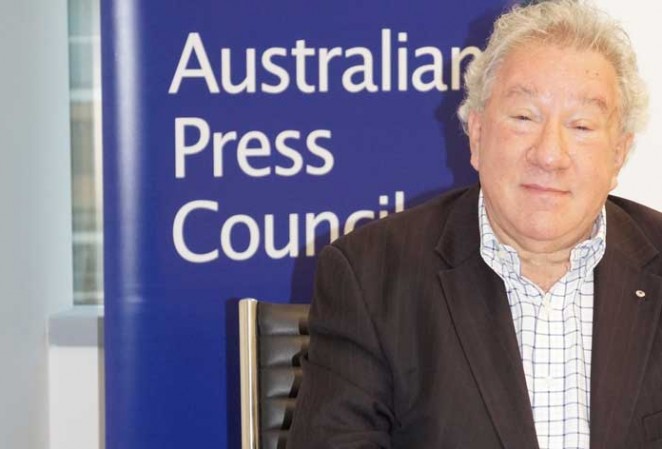
SYDNEY (Australian Press Council/Pacific Media Watch): The vice-chairs of the Australian Press Council have expressed their "deep regret" at the decision made by Professor David Weisbrot AM to resign as chair of the organisation, effective on July 18.
John Doyle, AC, and Julie Kinross praised Professor Weisbrot for his outstanding contribution to the Press Council over the past two and a half years, saying the council "will be the poorer for the loss of his leadership".
The vice-chairs said they had made concerted efforts to convince Professor Weisbrot to stay.
In his letter of resignation, Professor Weisbrot said the reason for leaving was "persistent personal attacks" and a campaign of "misinformation" over the council's appointment of public member Carla McGrath, made after a "fair and open process" and a convincing vote by the full council.
"My heart is simply no longer in the job, and it's a difficult enough job at the best of times," Professor Weisbrot said.
Professor Weisbrot said: "For the record, the basis of these attacks is thoroughly misconceived, suggesting that the appointment of a public member to the council is within the gift of the chair, and that I have the authority unilaterally to 'rescind' that appointment. In fact, the whole appointment process was carried out with careful attention to good process and the requirements set down by the council's constitution."
Professor Weisbrot expressed his "profound appreciation" to the Press Council's executive director John Pender and the secretariat, the current and previous vice-chairs and members of the Press Council.
Highlights of tenure
The vice-chairs of the Press Council acknowledge the outstanding work of Professor Weisbrot. Some of the highlights of his tenure include:
-
Re-energising the council's role as a strong public advocate for free speech, press freedom and open and transparent government;
-
Revamping and refreshing the council's Press Freedom Medal awards, to make them more outward looking and relevant to the industry and the community;
-
The development of the council's first-ever strategic plan and first-ever reconciliation action plan;
-
Increasing membership, including, for the first time, membership by Indigenous and multicultural publications, as well as from new online-only publications, such as Daily Mail Australia, Huffington Post, and Schwartz Media;
-
Developing a new and much needed advisory guideline on reporting family violence;
-
Increasing collaboration with journalism schools to support education and training, especially in media ethics;
-
Increasing collaboration and information sharing with other press councils in our region and internationally; and
- Organising an outstanding international conference on press freedom to help mark the council's 40th anniversary.
The Australian Press Council assisted in the establishment of the Timor-Leste Press Council and last month's Dili Declaration on media marking the first year's anniversary of the TLPC.
Press Council Carla McGrath appointment 'ill-advised'
The Australian refuses to work with new Press Council member from GetUp!
This work is licensed under a Creative Commons Attribution-NonCommercial 3




